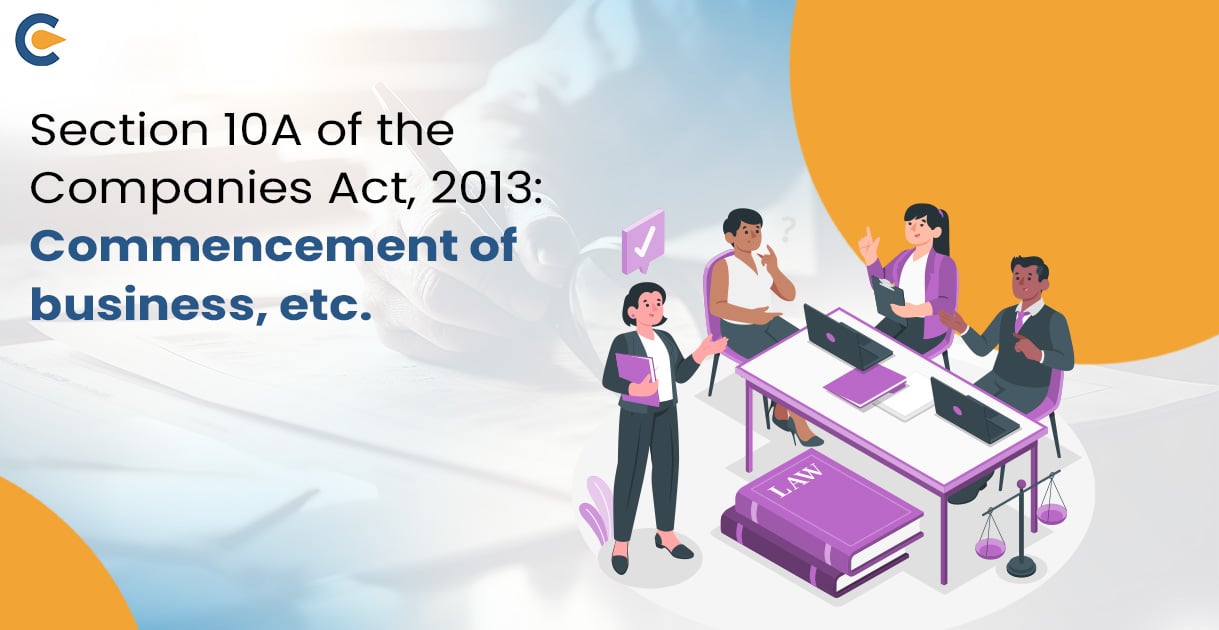A substantial piece of law that regulates how Indian firms are run is the 2013 firms Act. It offers a framework that delineates numerous facets of business law, such as how decisions are made inside a firm. The notion of a special resolution, which has substantial significance for some essential choices, is one noteworthy provision of the Act which is mentioned under Section 114 of Companies Act, 2013. A resolution may be either an ordinary resolution or a special resolution in accordance with the terms of Section 114 of Companies Act, 2013. According to Section 114 of Companies Act, a resolution can be classified as either an Ordinary Resolution or a Special Resolution. A resolution is deemed an ordinary resolution pursuant Sub-section (1) of Section 114 of Companies Act, if it receives a majority of the vote. According to Sub-section (2) of Section 114 of Companies Act, a resolution qualifies as a special resolution.


What is Resolution?
A formal written declaration known as a “company resolution” records decisions taken by the shareholders or the board of directors of the company in question. Resolutions are utilized to convey the governing body of a company’s goal, viewpoint, or agreement on a variety of issues. Resolutions are adopted during board or shareholder meetings and are documented in brief legal papers.
A company must make several decisions in order to expand its operations and satisfy legal obligations. Since a business is an artificial person, it is unable to make choices on its own and must instead consult with its members and directors. Most choices that are outside of a business’s regular day-to-day operations will need to be resolved. These must also be approved for every choice that modifies the company’s bylaws or rules. The main two types of resolutions practices in the companies are mentioned in the Section 114 of Companies Act, 2013.
Importance of a Company Resolution
- Resolutions are crucial because they give businesses a quick and efficient way to handle choices that would otherwise require a lot of time.
- Additionally, it enables the owners and board of directors to keep the company’s personnel accountable and give necessary guidance when necessary.
- Resolutions also assist in providing a record of prior choices, which shareholders may consult as needed. This may occur during audits or other situations where the company’s goals and performance need to be examined.
What is Ordinary Resolution?
Section 114 of Companies Act discusses ordinary resolution. In a standard resolution, votes in favour of the resolution are cast by show of hands, electronically, or by polling mechanism. According to the Companies Act of 2013, an ordinary resolution is one that receives a majority of the vote. Only members who qualify may vote on an ordinary resolution. As a result, the vote of a member who refrains or is unable to vote will not be counted.
It is an official record that the company must abide by. Ordinary resolutions are equivalent to voting processes where participants merely say “yes” or “no.” Small-scale companies typically do business by showing hands. Both in-person participation and audio or video conferences are acceptable for the directors. It should take no less than seven days to serve the written notice of the meeting. It should be delivered to the director’s registered address.
The number of votes voted for the ordinary resolution must be more than the number of votes cast against it. The motion to approve the resolution should get a simple majority of votes. All members should get notice in advance. Additionally, at least fifty-one percent of the members must agree to the proposal. Once the signatures are obtained, ordinary resolution’s copy must be filed with the ROC.
What all matters require an Ordinary Resolution?
| MOA alteration under section 61. |
| When it comes to prohibited non-cash transactions, a regular decision is taken. |
| Matters pertaining to the appointment of a managing director, a whole-time director pursuant to sections 196 and 197, and the dismissal of a director prior to the term’s expiration under section 169 |
| Whether the company is voluntarily liquidated or a liquidator is appointed. |
| If the issue involves the election of directors |
| Relates to the company’s name change |
| If the nomination of auditors and the determination of compensation are at issue |
| If a dividend declaration is made. |
| If the issue involves a change to the authorized capital |
| The Unlimited Company shall arrange for reserve share capital upon converting into a Limited Company pursuant to section 65 of the Companies Act. |
What is a Special Resolution?
By ensuring that significant decisions are not made hastily, special resolutions serve a critical role in protecting the best interests of the company as well as its stakeholders. Special resolutions provide a greater degree of shareholder agreement and support since they require a larger majority. It minimizes the possibility of arbitrary or irrational decision-making by ensuring that key changes inside the organization have the support of a sizeable majority.
A special resolution must get the consent of at least three-fourths (75%) of the shareholders attending and casting votes at a general meeting, as per Section 114 of Companies Act, 2013. When a proposal is intended to be proposed as a special resolution and is listed in the notice convening the general meeting, it is referred to as a special resolution. If the members vote by show of hands, electronic ballot, or by-poll, it makes the resolution exceptional.
What all matters require a Special Resolution?
| Description | Section |
| For inserting provisions related to entrenchment in the articles of associations of a public company | Section 5(4) |
| For changing the registered office of the company to a place which is outside the local limits of the village or the city, a special resolution is required. | Section 12(5) |
| For altering the memorandum’s provisions. And to alter the purposes for which funds obtained via public have remained unused. | Section 13(1) and (8) |
| To modify the AOA, including changes that would transform a privately held company into a public one or the other way around, Special resolution in General Meeting was required. | Section 14 |
| A change in the conditions of a contract mentioned in the prospectus or the objects that were the reason the prospectus was published. | Section 27 |
| A corporation is permitted to issue Depository Receipts in any country other than its own. | Section 41 |
| When a company’s share capital is divided into various classes of shares, it is possible to change the rights associated with those shares. | Section 48(1) |
| For adopting any scheme for the buying or subscription of fully paid shares in the company or as its holding company, provided that the plan is for the purchase or subscription of shares that are held by trustees on behalf of the workers or are owned by the employee themselves. | Section 67(3)(b) |
| Registers, refunds, etc., must be kept at any other Indian location where more than 10% of the members listed in the membership record are located. | Section 94(1) |
| Approving the company’s share buyback plan | Section 68(2)(b) |
| To consent to the conditions of the Debentures or Loans issued by the Company for the purpose of converting such Loans or Debentures Convertible to Company Stock | Section 71(1) |
| By lowering the proportion of its share capital that is subject to approval by the tribunal on the business’s application, a corporation may change its memorandum. | Section 66 |
| If approved by a Special Resolution adopted by the Company, a Special Resolution can issue Company Sweat Equity Shares of a Class of Shares that have already been issued. | Section 54 |
| Use a stock option plan to provide more shares to employees in order to increase subscribed capital. | Section 62(1)(b),62(1)(c) and proviso to 62(3) |
| To get rid of the Auditor before his tenure expires. In other words, the auditor appointed in line with Section 139 cannot be fired before the end of his term unless the firm accepts a special resolution. | Section 140(1) |
| Either to designate an appropriate replacement for the departing auditor or to expressly state that the retiring auditor is not going to be reappointed. | |
| Powers that the board is only permitted to use with shareholder approval. | Section 180(1) |
| Any loan, guarantee, or security can be advanced by the company. | Section 185(2)(a) |
| By adopting a specific resolution, a business may propose up to 15 directors. In public, private, and one-person companies, the board of directors | Section 149 (1) Proviso and (10) |
| To confirm that the Tribunal will liquidate the corporation to find out if the firm was voluntarily dissolved | Section 271(1)(a) |
| To hire a senior executive as a managing director, full-time director, or manager who is 70 or above 70 appointment of the, whole time director or managing director , or manager of a company | Section 196(3)(a) |
| To calculate the compensation due to a company’s directors, including any managing or full- time directors or managers | Section 197(4) |
| To forego the recovery of the amount that is due under Sub -Section 9’s requirement that, in the event a director receives compensation that exceeds the maximum set out, he return the excess to the business within two years and retain the remaining balance in trust for it. | Section 197(10) |
| For any of the explanations listed in Section 248 of the 2013 Companies Act, a company may request to the Registrar that its name be removed from the register of companies. | Section 248(2) |
| Approving the failing firm’s merger with any other company that the owners of both companies have recommended | |
| The shareholders of the Company may from time to time amend the application of Table F of Schedule I by passing a special resolution authorizing the adjustment. | Section 371(3)(a) |
Upon learning that the Serious Fraud Investigation Office needs to look into the company’s issues | Section 210(1)(b) |
Process of Resolution
Until an initiative for a proposed resolution receives enough support to pass it is known as movement. After the necessary authorization is acquired in accordance with the Companies Act of 2013, it becomes a resolution. Topics that require a special resolution must be listed on the meeting agenda, which is provided when the notice of the scheduled meeting is sent out. For matters for which the Companies Act of 2013 does not need a special resolution, motions resulting from talks may be allowed. As stated in Secretarial Standard-2 paragraph 7.1, each resolution is often introduced by one member, followed by the introduction of the second resolution by another member. The under-consideration proposal may be amended throughout the discussion.
There are several ways to change the main motion. However, a modification to an amendment is able to be made once. When there are several amendments to a motion, the previous motion can be withdrawn with the unanimous agreement of the members and a new motion incorporating all the amendments may be voted on. When a resolution is considered exceptional, Form MGT-14 must be filed with the Registrar of Companies within thirty days of the resolution’s passing.
Difference between Ordinary and Special Resolution
The following are the primary distinctions between special and conventional resolution:
- A special resolution requires a clear majority in order to pass, whereas an ordinary resolution just requires a simple majority.
- According to the Companies Act, an Ordinary Resolution is required for all Ordinary Business Transactions. While Special Business Transactions Require a Special Resolution.
- The approval of a Special Resolution at a general meeting needs a two-thirds majority. Ordinary Resolutions are utilized at general meetings because just a simple majority is required to pass a resolution.
- A copy of the ordinary resolution must be filed with the Registrar by every company. In the event of a special resolution, the Registrar will receive a printed copy of the resolution within 30 days.
- A special resolution needs 75% supports, whereas an ordinary resolution can be passed with the backing of 51% of the members.
Conclusion
Companies have meetings to go through the complex details of the business. Voting frequently takes place on certain company-specific notions. The Companies Act of 2013’s resolution notion is only a tool for achieving the business’s single goal. For company governance and compliance, it is crucial to comprehend the idea behind special resolutions and their procedural requirements. Companies may make responsible decisions that support their development and sustainability by following these rules. Section 114 of Companies Act, 2013 discusses about both ordinary and special resolution.
Frequently Asked Questions
When a resolution is properly defined in the notice, called for a general meeting, and has three times as many supporters as opponents, it is considered exceptional.
According to Section 114 of Companies Act of 2013, a special resolution requires the approval of at least three-fourths (75%) of the shareholders present and voting at a general meeting.
In accordance with Sub-section (1) of Section 114 of Companies Act, 2013, a resolution is considered an ordinary resolution if the notice required by this Act has been given, and it must be approved by the votes cast, whether or not on a unanimous basis, electronically, or by poll, as the case may be, that are in favour of the resolution, along with the Chairman’s potential casting vote.
Members must send such notice to the firm not earlier than three months but no later than 14 days before the scheduled time of the meeting where the resolution is to be moved.
If the to-be-removed director is an independent director, a separate resolution is required to remove the director.
A resolution that was approved by the company’s members with a slim majority is referred to as an ordinary resolution. On the other hand, a special resolution is one that is approved by a three-fourths majority of the members of the regular resolution company.
For things like significantly altering a company’s bylaws, changing the name of the company, approving specific corporate transactions (like mergers and acquisitions), authorizing share buybacks or reductions, and winding up or liquidating the company, special resolutions are frequently necessary.
Read Our Article: Section 218 Of Companies Act, 2013: Protection Of Employees During Investigation











